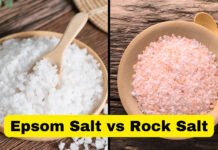Processed vs Ultra Processed Foods: Know the Difference
When it comes to your diet, making informed choices is essential for your health and well-being. We are constantly bombarded with food options, but do you really know what you’re putting into your body? Have you ever wondered about the difference between processed and ultra processed foods?
Processed foods are a common part of our modern diet, but they often come with hidden health risks. On the other hand, ultra processed foods take processed to a whole new level, and their impact on our health is a cause for concern. So, what exactly sets these two types of foods apart? And more importantly, how can understanding this difference help us make healthier dietary choices?
Key Takeaways:
- Processed foods undergo various preservation methods and often contain added sugars, unhealthy fats, and high sodium levels.
- Ultra processed foods are highly manipulated products packed with additives, preservatives, and artificial ingredients.
- Ultra processed foods have been linked to various health problems, including obesity, heart disease, and type 2 diabetes.
- Knowing how to read food labels and identify ultra processed foods can help you make healthier choices.
- By prioritizing whole, minimally processed foods, you can nourish your body with essential nutrients and reduce potential health risks.
What are Processed Foods?
Processed foods undergo various methods of preservation to extend their shelf life. These foods often contain added sugars, unhealthy fats, and high levels of sodium. The processing of these foods involves altering their natural state through techniques such as canning, freezing, or refining. Common examples of processed foods include canned fruits and vegetables, frozen meals, deli meats, and packaged snacks.
While processed foods may offer convenience and longer shelf life, they lack the essential nutrients found in whole foods. Consuming these foods in excess can contribute to a range of health issues, including obesity, heart disease, and type 2 diabetes. Therefore, it is important to be mindful of the processed foods you consume and to make an effort to incorporate more whole foods into your diet.
"One of the best things you can do for your health is to prioritize consuming whole, minimally processed foods over their processed counterparts." - Dr. Lisa Jones
Unlike processed foods, whole foods are in their natural form and have undergone little to no processing. They are rich in essential nutrients, fiber, and antioxidants, which play a vital role in maintaining optimal health. Whole foods include fruits, vegetables, whole grains, lean proteins, and legumes.
By incorporating more whole foods into your diet, you can reap numerous benefits. These include improved digestion, increased energy levels, enhanced immune function, and reduced risk of chronic diseases. Whole foods provide a range of vitamins, minerals, and phytochemicals that are essential for overall well-being.
An Introduction to Ultra Processed Foods
When it comes to making healthy dietary choices, understanding the impact of ultra processed foods on your health is crucial. Ultra processed foods are highly manipulated products that often contain minimal nutritional value. Instead, they are typically packed with additives, preservatives, and artificial ingredients that can have detrimental effects on your well-being.
What are Ultra Processed Foods?
Ultra processed foods are those that have undergone extensive processing, involving multiple steps and the addition of artificial substances. These foods are often convenient and readily available, but they lack the essential nutrients that whole foods provide. Instead, they contribute to a range of health issues and can lead to chronic conditions such as obesity, heart disease, and type 2 diabetes.
Ultra processed foods have been linked to numerous health risks, including obesity, heart disease, and type 2 diabetes.
Common examples of ultra processed foods include sugary breakfast cereals, packaged snacks, fast food meals, and soft drinks. These products tend to be high in unhealthy fats, added sugars, sodium, and other synthetic ingredients. Consuming them regularly can have a significant negative impact on your overall health and well-being.
How to Avoid Ultra Processed Foods
While it may seem challenging to avoid ultra processed foods in today’s convenience-driven world, there are practical steps you can take to prioritize healthier alternatives:
- Opt for whole, minimally processed foods: Choose fresh fruits, vegetables, lean proteins, whole grains, and natural dairy products. These foods offer a wide range of essential nutrients and are free from the additives found in ultra processed options.
- Read food labels: Pay attention to the ingredient list and nutrition facts on packaged foods. Look for products with a short list of recognizable, pronounceable ingredients and minimal artificial additives. Avoid foods with high levels of added sugars, unhealthy fats, and sodium.
- Prepare meals at home: Cooking meals from scratch gives you full control over the ingredients that go into your meals. This way, you can ensure you are consuming whole foods and avoid the hidden additives present in ultra processed options.
- Plan your meals and snacks: By planning your meals and snacks in advance, you can avoid relying on ultra processed foods when hunger strikes. Have a variety of healthy options readily available, such as pre-cut fruits and vegetables, nuts, homemade granola bars, and yogurt.
By following these practices, you can reduce your consumption of ultra processed foods and make healthier choices for your overall health and well-being.
Now that we understand the impact of ultra processed foods on our health and how to avoid them, let’s explore the specific health risks associated with these products in the next section.
The Health Risks of Ultra Processed Foods
Ultra processed foods have become increasingly prevalent in our modern diets. These convenient and readily available food options may seem appealing, but they come with significant health risks. Research has shown strong associations between the consumption of ultra processed foods and various health problems, including:
- Obesity: Ultra processed foods are often high in added sugars, unhealthy fats, and calories. These factors contribute to weight gain and obesity, which are known risk factors for numerous chronic diseases.
- Heart disease: Regularly consuming ultra processed foods has been linked to an increased risk of heart disease. These products typically contain high levels of sodium, unhealthy trans fats, and artificial additives, all of which can negatively impact heart health.
- Type 2 diabetes: Ultra processed foods often lack the essential nutrients and dietary fiber found in whole foods. Instead, they are commonly packed with refined carbohydrates, which can lead to insulin resistance and an elevated risk of developing type 2 diabetes.
Fortunately, there is a healthier alternative. By choosing whole, minimally processed foods, you can significantly reduce your risk of developing these conditions. Whole foods, such as fresh fruits, vegetables, lean proteins, and whole grains, provide essential nutrients, fiber, and antioxidants that promote good health. Incorporating these foods into your diet can improve your overall well-being and protect against the negative effects of ultra processed foods.
Identifying Ultra Processed Foods
Being able to recognize ultra processed foods is crucial in making healthier dietary choices. Understanding how to read food labels and identify hidden additives and harmful ingredients will empower you to avoid these products and prioritize your well-being.
When shopping for groceries, take the time to read and understand the information provided on food labels. Pay attention to the list of ingredients, as this will give you insight into the level of processing a product has undergone. Look out for keywords such as “hydrogenated,” “refined,” or “artificial,” as these can indicate the presence of additives and unhealthy components.
In addition to reading the ingredient list, make use of the nutritional information provided on food labels. This will help you gauge the nutritional value of a product and make informed choices. Look for foods that are low in added sugars, unhealthy fats, and sodium, and high in essential nutrients like fiber, vitamins, and minerals.
Remember, just because a product claims to be “natural” or “organic” doesn’t necessarily mean it is free from ultra processed ingredients. Always read the labels to confirm the nutritional content and assess the level of processing.
"Reading food labels is like having X-ray vision into the quality of the food you consume. It allows you to see beyond the packaging and make more conscious choices for your health and well-being." - Dr. Lisa Johnson, nutritionist
By familiarizing yourself with the signs of ultra processed foods, you can avoid potentially harmful products and prioritize whole, minimally processed options. Make it a habit to read food labels every time you shop, and compare different brands to find the healthiest choices available.
The Importance of Reading Food Labels
Reading food labels is not just about avoiding ultra processed foods; it is also about taking control of your health and making informed decisions about what you put into your body. Here are some key reasons why reading food labels is important:
- Understanding nutritional content: Food labels provide valuable information about the nutrient content of a product, such as the amount of calories, fat, protein, and carbohydrates. This information can help you maintain a balanced diet and meet your specific dietary needs.
- Identifying potential allergens: Food labels list common allergens, such as peanuts, dairy, and gluten. If you have any food allergies or intolerances, reading labels can help you avoid potential triggers and keep you safe.
- Monitoring added sugars and unhealthy ingredients: Ultra processed foods often contain high amounts of added sugars, unhealthy fats, and sodium. By reading food labels, you can keep track of these ingredients and limit your intake, reducing the risk of chronic health conditions.
- Comparing products: Food labels enable you to compare similar products and choose the ones that are healthier and more aligned with your nutritional goals. Use the information provided to make informed choices that support your overall well-being.
Remember, your health is in your hands. Take the time to read food labels, educate yourself about the impacts of ultra processed foods on health, and make choices that prioritize your well-being. Your body will thank you!
Tips for Avoiding Ultra Processed Foods
To reduce your intake of ultra processed foods and prioritize your health, it’s essential to make simple yet effective changes to your shopping habits and meal planning. By incorporating these practical tips and strategies, you can gradually shift towards consuming more whole foods, reaping the numerous benefits they offer.
- Plan your meals: Taking the time to plan your meals in advance can help you avoid last-minute unhealthy choices. Create a weekly meal plan and make a shopping list accordingly, focusing on whole ingredients like fresh fruits and vegetables, lean proteins, and whole grains.
- Shop the perimeter: Take advantage of the layout of most grocery stores where the fresh, whole foods are usually located along the perimeter. Fill your cart with nutrient-rich options like colorful produce, lean meats, and dairy products.
- Read food labels: Take a closer look at the ingredients list and nutrition facts of processed foods. Avoid products that contain artificial additives, excessive added sugars, unhealthy fats, or high levels of sodium.
- Buy in bulk: Purchasing whole foods in bulk can be a cost-effective way to stock up on healthy essentials. Opt for items like whole grains, nuts, and seeds, allowing you to create nutritious meals without relying on heavily processed alternatives.
- Cook from scratch: Instead of relying on pre-packaged meals or takeout, invest some time in preparing your meals from scratch. This gives you complete control over the ingredients and allows you to avoid the hidden additives commonly found in ultra processed foods.
- Experiment with whole food substitutes: Explore the world of natural and less processed alternatives for your favorite processed foods. For example, swap white bread for whole grain options, or use mashed avocado as a healthier alternative to mayonnaise or butter.
- Be mindful of snacking: Ultra processed foods often find their way into our snacking habits. Instead of reaching for processed snacks, have nutritious whole foods readily available. Keep a bowl of fresh fruit or a container of cut-up vegetables in your kitchen for convenient and healthy snacking.
By implementing these tips, you can gradually reduce your consumption of ultra processed foods and enjoy the benefits associated with a diet rich in whole, unprocessed ingredients. Remember, small changes add up over time, and your body will thank you for choosing nourishing options.
The Importance of Choosing Whole Foods
Emphasizing whole foods in your diet can have numerous benefits for your health. By incorporating fresh fruits, vegetables, lean proteins, and whole grains, you can nourish your body with essential nutrients and reduce the potential harm caused by ultra processed foods.
Consuming whole foods provides your body with a wide range of vitamins, minerals, antioxidants, and fiber that are vital for optimal health. These nutrients support your immune system, help prevent chronic diseases, and promote overall well-being. Whole foods are also typically lower in added sugars, unhealthy fats, and sodium compared to ultra processed options.
Choosing whole foods over ultra processed foods can significantly reduce your risk of developing health problems like obesity, heart disease, and type 2 diabetes. Ultra processed foods are often high in calories and low in nutritional value, making them a major contributor to these chronic conditions.
By focusing on whole foods, you can maintain a healthy weight, improve your cardiovascular health, and better manage your blood sugar levels. The fiber content in whole foods aids digestion, promotes satiety, and helps regulate blood cholesterol levels.
Incorporating whole foods into your meals and snacks is easier than you might think. Start by replacing processed snacks with fresh fruits, nuts, or homemade energy bars. Swap out refined grains for whole grains like brown rice, quinoa, and whole wheat bread. Include a variety of colorful vegetables in your meals for added nutrients and antioxidants. Opt for lean proteins such as chicken, fish, and legumes.
When planning your meals, aim for a balance of different whole foods to ensure you’re getting a diverse range of nutrients. Consider using online resources and recipe books for inspiration and guidance.
Remember, your food choices can have a significant impact on your overall health and well-being. By prioritizing whole foods and minimizing your consumption of ultra processed options, you can support your body’s nutritional needs and reduce your risk of chronic diseases.
Conclusion
Understanding the difference between processed and ultra processed foods is crucial for making informed dietary choices. By prioritizing whole, minimally processed foods, you can support your overall health and well-being.
Processed foods often contain added sugars, unhealthy fats, and high sodium levels. On the other hand, whole foods provide essential nutrients, fiber, and other health benefits. By choosing whole foods, you can nourish your body with the nutrients it needs.
Avoiding ultra processed foods is equally important. These highly manipulated products often lack significant nutritional value and are packed with artificial ingredients and additives. By steering clear of ultra processed foods, you can reduce your risk of developing health problems such as obesity, heart disease, and type 2 diabetes.
Take control of your nutrition by making conscious decisions that align with your long-term health goals. Embrace whole, minimally processed foods and avoid ultra processed options. Your body will thank you for it in the long run.
FAQ
What is the difference between processed and ultra processed foods?
Processed foods undergo various methods of preservation to extend their shelf life, while ultra processed foods are highly manipulated products that often contain minimal nutritional value and are packed with additives, preservatives, and artificial ingredients.
Why is it important to consume whole foods?
Consuming whole foods provides essential nutrients, fiber, and other health benefits. Whole foods have not undergone extensive processing and are free from added sugars, unhealthy fats, and excessive sodium.
What are the health risks associated with consuming ultra processed foods?
Ultra processed foods have been linked to various health problems, including obesity, heart disease, and type 2 diabetes. By choosing whole, minimally processed foods, you can reduce your risk of developing these conditions and maintain better overall health.
How can I identify ultra processed foods?
Reading food labels and being aware of hidden additives and harmful ingredients is crucial in identifying ultra processed foods. Look for ingredients such as artificial flavors, preservatives, and high-fructose corn syrup, as well as foods that have undergone extensive processing.
How can I avoid consuming ultra processed foods?
Making simple changes to your shopping habits and meal planning can help you avoid ultra processed foods. Opt for fresh fruits, vegetables, lean proteins, and whole grains, and cook meals at home using whole, minimally processed ingredients. Avoid purchasing pre-packaged meals and snacks that are high in additives and preservatives.
What are the benefits of choosing whole foods?
Choosing whole foods can provide numerous benefits for your health. Whole foods are rich in essential nutrients, promote healthy digestion due to their high fiber content, and are generally lower in added sugars, unhealthy fats, and sodium compared to processed and ultra processed foods.
















